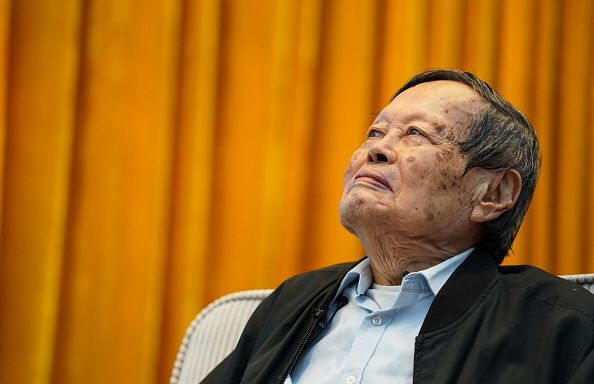Common Daily Habits That Could Be Harming Your Organs, Says Mumbai Surgeon
Nobel Laureate Physicist Chen Ning Yang Passes Away at 103
Beijing, Oct. 18, 2025
Chen Ning Yang, one of the most celebrated physicists of the 20th century and a Nobel Prize winner, passed away in Beijing on Saturday at the age of 103 after a long illness, according to China’s official news agency Xinhua.
Born in 1922 in Hefei, Anhui province in eastern China, Yang went on to become a pioneering figure in modern physics. His work transformed the understanding of fundamental laws governing the universe, particularly in the fields of statistical mechanics and particle physics. Over his long and distinguished career, he bridged the scientific worlds of China and the United States, leaving a lasting mark on both.
Yang’s groundbreaking contributions came in the mid-20th century when he and fellow physicist Tsung-Dao Lee challenged long-accepted beliefs about the laws of physics. Together, they proposed that a basic principle called “parity conservation” — which assumes that nature treats right and left equally — did not always hold true in certain types of subatomic reactions.
Their revolutionary theory, which was later confirmed through experiments, reshaped the field of particle physics and helped scientists better understand how the universe works at its most fundamental level. In recognition of their discovery, Yang and Lee jointly received the Nobel Prize in Physics in 1957. They became the first Chinese-born scientists to win a Nobel Prize, marking a historic moment not only for science but also for China’s growing influence in global research.
Yang’s intellectual journey was deeply international. After earning his undergraduate degree from the National Southwestern Associated University in Kunming during World War II, he moved to the United States for graduate studies. He received his Ph.D. from the University of Chicago in 1948, where he was mentored by the legendary physicist Enrico Fermi.
He later joined the faculty at Princeton University’s Institute for Advanced Study, an institution famous for hosting some of the world’s greatest minds, including Albert Einstein. During his time there, Yang continued to produce groundbreaking research that influenced generations of physicists.
In 1966, he became a U.S. citizen, but his connection to China remained strong throughout his life. After China reopened to the world in the late 1970s, Yang played a key role in rebuilding academic and scientific exchanges between China and the West. He made frequent visits to his homeland and contributed significantly to the development of modern physics research and education in China.
Returning to China permanently later in life, Yang served as an academic leader and mentor to young scientists. His dedication to nurturing future generations and advancing Chinese science was widely recognized and celebrated.
Chen Ning Yang’s life spanned a century of profound scientific change. His discoveries not only reshaped modern physics but also symbolized the power of curiosity, intellect, and cross-cultural collaboration in the pursuit of knowledge. His passing marks the end of an era, but his influence will continue to inspire physicists and thinkers around the world for decades to come.
Nobel Laureate Chen Ning Yang Passes Away at 103
Renowned physicist and Nobel Prize winner Chen Ning Yang passed away in Beijing at the age of 103. Born in Hefei, China, in 1922, Yang made groundbreaking contributions to particle physics and statistical mechanics. He, along with Tsung-Dao Lee, won the 1957 Nobel Prize in Physics for discovering the violation of parity conservation, a finding that changed the understanding of fundamental physics. Throughout his career, Yang bridged the scientific worlds of China and the United States and inspired generations of researchers with his pursuit of knowledge and his lifelong dedication to science and education.














Add Comment